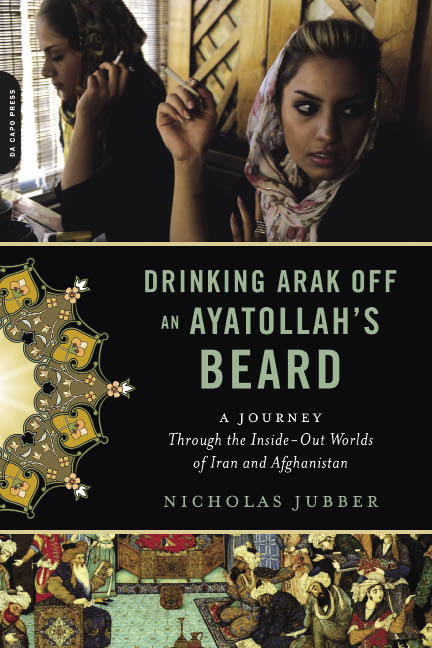In an age when it is fashionable to travel with a fridge, Nicholas Jubber’s decision to take an 11th-century epic poem as his travelling companion to Iran and Afghanistan can only be admired.
In an age when it is fashionable to travel with a fridge, Nicholas Jubber’s decision to take an 11th-century epic poem as his travelling companion to Iran and Afghanistan can only be admired.
Written by the poet Ferdowsi sometime around 1000, the Shahnameh or Book of Kings consists of a whopping 60,000 couplets, four times the length of the Odyssey and Iliad combined. By turns mythical and historical, it tells the story of 50 shahs from the Gaiomart of prehistory to the splendidly named Yazdagird III, whose fateful reign brought the Persian empire crashing down with the Arab invasion of 637. Decried and suppressed as heresy by the Islamic mullahs, for whom it inappropriately celebrates Iran’s pre-Islamic past, the Shahnameh is revered with equal force by Iranians young and old. It is, as Jubber observes, part of the country’s cultural DNA.
One of the great pleasures of this book, particularly for anyone unfamiliar with Iran, is how far removed it is from the weary, dreary media narrative we know so well, which paints only the most superficial picture of a complex and sophisticated society. We are spared the interminable debates on the President’s nuclear programme, the status of the opposition and the role of the hijab. Poetry, not prose, is the order of the day here.
As the Iranian film director Abbas Kiarostami says, ‘Poetry in Iran pours down on us, like falling rain, and everyone takes part in it.’ Among his many forays into verse, Jubber quotes one especially memorable couplet:
Open the door of the tavern before me night
and day,
For I have become weary of the mosque and
seminary.
Remarkable, because its author was Ayatollah Khomeini, father of the Islamic revolution. In Tehran, Jubber catches his host’s wife reciting lines from the feminist poet Forugh Forrukhzad while hanging up the laundry. This is a country in which taxi- drivers are less likely to regale their passengers with diatribes against immigration and the national football team than quote the mystical 14th-century poet Hafez, beloved by literati from Gertrude Bell to the late Afghan mujahideen leader, Ahmed Shah Massoud.
Hearing his English passenger’s reference to Ayatollah Khomeini as ‘blessed’, another taxi-driver vents his spleen in no uncertain terms:
He was no Iranian, he was Arab. All these mullahs are Arabs! They came here with fire and sword hundreds of years ago and since then they haven’t left us alone.
For many Iranians, the Arab invasion of 14 centuries ago is still a fresh and painful memory, not unlike the ranks of Greeks — and philhellenes, like Patrick Leigh Fermor — for whom the fall of Constantinople to the Ottomans in 1453 still constitutes a shattering loss.
Jubber makes a good case for the ubiquity of the Shahnameh in the Iranian psyche, and his literary discoveries are felicitous. Chatting up a girl in tottering heels and black miniskirt in an underground party in Tehran one night, he discovers that the lyrics of a thrash metal song that have an entire dance floor in the throes of abandon are drawn from Ferdowsi’s 1,000-year-old epic. In the same city he drinks illicit gin with a subversive artist who has painted a striking image from the Shahnameh equating the Islamic authorities with the evil prince Zahhak, the mythical snakes in his shoulders morphed into menacing minarets. In Yazd he meets Zoroastrians whose names are all plucked from Ferdowsi’s opus. Wherever he goes, and his travels are suitably exotic, far-flung and alcohol-fuelled, conversations about the Shahnameh quickly dissolve barriers. In its pages he finds a book of secrets with its own codes to decipher.
As a literary guide to Afghanistan, it proves an equally deft choice. An Afghan mujahid tells him, ‘If you read the Shahnameh, you can understand why we will never let foreigners rule our country.’ It is probably too late, almost a decade into the UK’s tragic, futile intervention in Afghanistan to expect anyone in the Ministry of Defence or 10 Downing Street to open Ferdowsi, but perhaps the former defence secretary, John Reid, would never have said anything so stupid on deploying British troops if he had.
Travelling to the fabled city of Herat in Afghanistan, destroyed by the Turkic warlord Tamerlane in 1379, Jubber meets Master Rajey, chairman of its literary society, who reminds him that Ferdowsi’s great work applies not just to Iran, but to Aryan culture more widely, whose origin is shared by the Persian-speaking Afghans of western and northern Afghanistan. Thus, in one of its stories, Rudaba, the princess of Kabul, unfurls her ‘musky black tresses’ from a lofty tower so her lover Zal can climb up them to meet her, a harbinger of the Grimm brother’s tale of Rapunzel, culled from German tales of Aryan origin.
Given Herat’s prodigious cultural heritage, it is reassuring to find that Saeed Haqiqi, the resident BBC Persian Service correspondent, is also one of the city’s most respected poets. Jubber meets a contemporary poet called Nadia Anjoman and is touched by her verses.
What should I do with a trapped wing
Which does not let me fly?
I have been silent too long,
But I never forget the melody,
Since every moment I whisper
The songs from my heart,
Reminding myself of
The day that I will break this cage,
Fly from this solitude
And sing like a melancholic.
A year after his visit, Jubber discovers that she has died. Her family disapproved of her poetry. Her husband says she poisoned herself, but there are bruises on her body. Poetry can come at a price in this part of the world.
Justin Marozzi is writing a history of Baghdad.






Comments